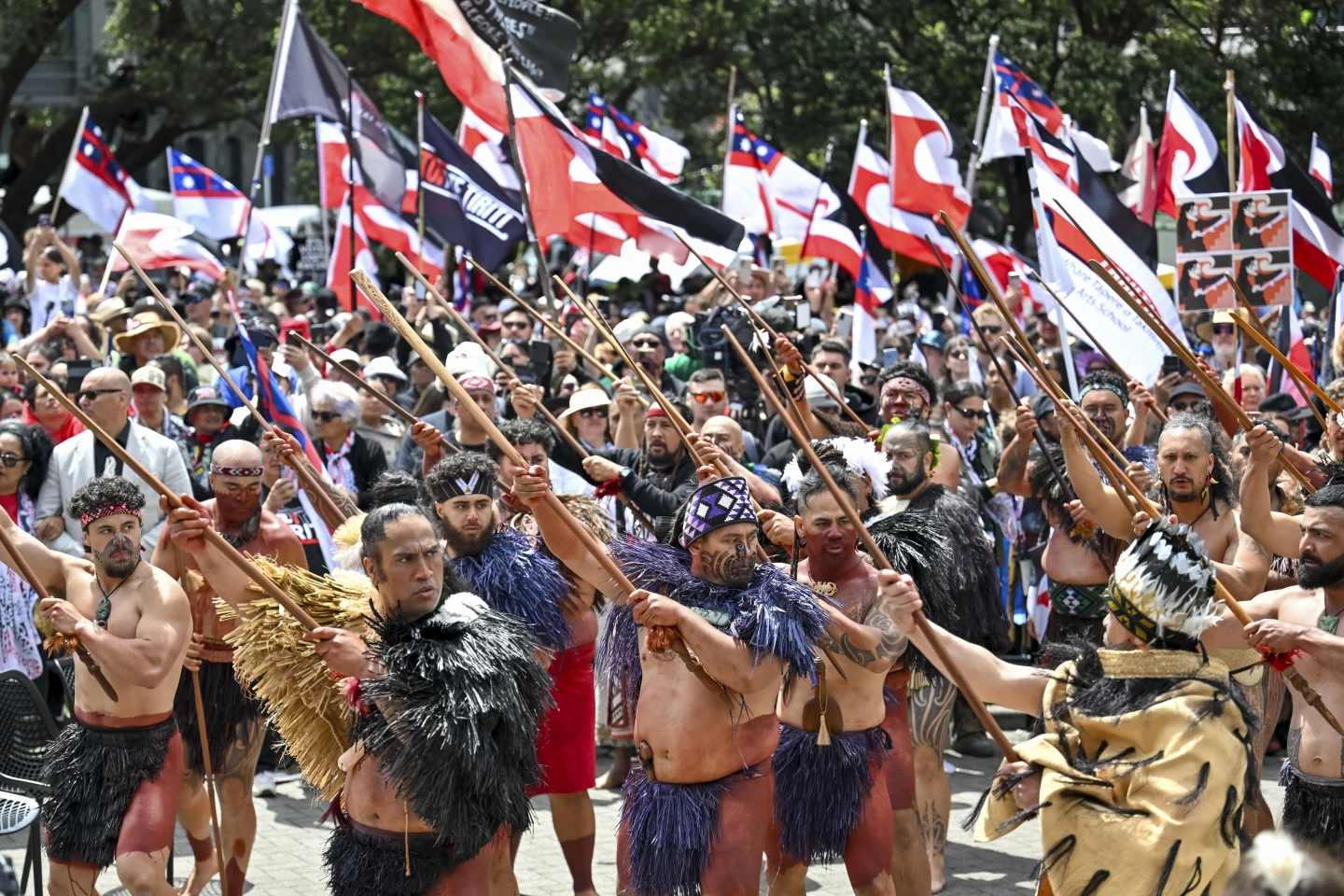On Tuesday, New Zealand’s capital city, Wellington, became the focal point of a massive protest, as tens of thousands of people rallied against a proposed bill aiming to redefine the Treaty of Waitangi. The bill, introduced by David Seymour, leader of the conservative ACT Party, has sparked significant controversy, with critics arguing that it could undermine the rights of the Maori people.
Protesters filled the streets, chanting traditional Maori haka and marching towards the parliament. This demonstration, which included over 42,000 participants, was part of a broader wave of protests across New Zealand in response to the bill.
The protesters, many wearing traditional Maori attire such as feather cloaks and moko tattoos, displayed their cultural pride and opposition to the bill. Among the crowd were children, families, and horse riders waving the red, white, and black Maori flag.
The demonstrators made their way through busy streets, gathering outside the distinctive beehive-shaped parliament building. There, they played reggae music and held speeches, demanding that the government engage with them and address their concerns about the proposed changes to the Treaty.
The bill, while highly unlikely to pass, has stirred up deep unrest across New Zealand. Critics, including some of the country’s most respected lawyers, argue that the bill represents an attempt to strip away rights long agreed upon in the Treaty of Waitangi, signed in 1840 between Maori chiefs and British colonizers.

Tens of Thousands Protest in Wellington Against Controversial Bill to Redefine Treaty of Waitangi
The treaty, regarded as New Zealand’s founding document, established principles intended to ensure a partnership between Maori and non-Maori communities, safeguarding the interests of the Maori people.
At the heart of the controversy is David Seymour, who has been a vocal critic of affirmative action policies aimed at addressing the disparities faced by Maori, such as higher rates of poverty, incarceration, and early mortality.
His bill seeks to limit what he describes as “special rights” for Maori. Despite Prime Minister Christopher Luxon’s public opposition to the bill, it has ignited a political and cultural debate about the future of the Treaty of Waitangi and the recognition of Maori rights.
The protests reached a dramatic moment in parliament last week when Hana-Rawhiti Maipi-Clarke, a 22-year-old Maori Party MP, tore the bill in half and performed a haka in defiance. While the bill’s chances of passing are slim, its mere introduction has been seen by many, including former Prime Minister Jenny Shipley, as a divisive act that could further polarize the nation.
The Treaty of Waitangi’s anniversary remains a national holiday, a day commemorating the peace agreement that continues to shape the relationship between New Zealand’s Indigenous and non-Indigenous peoples.
